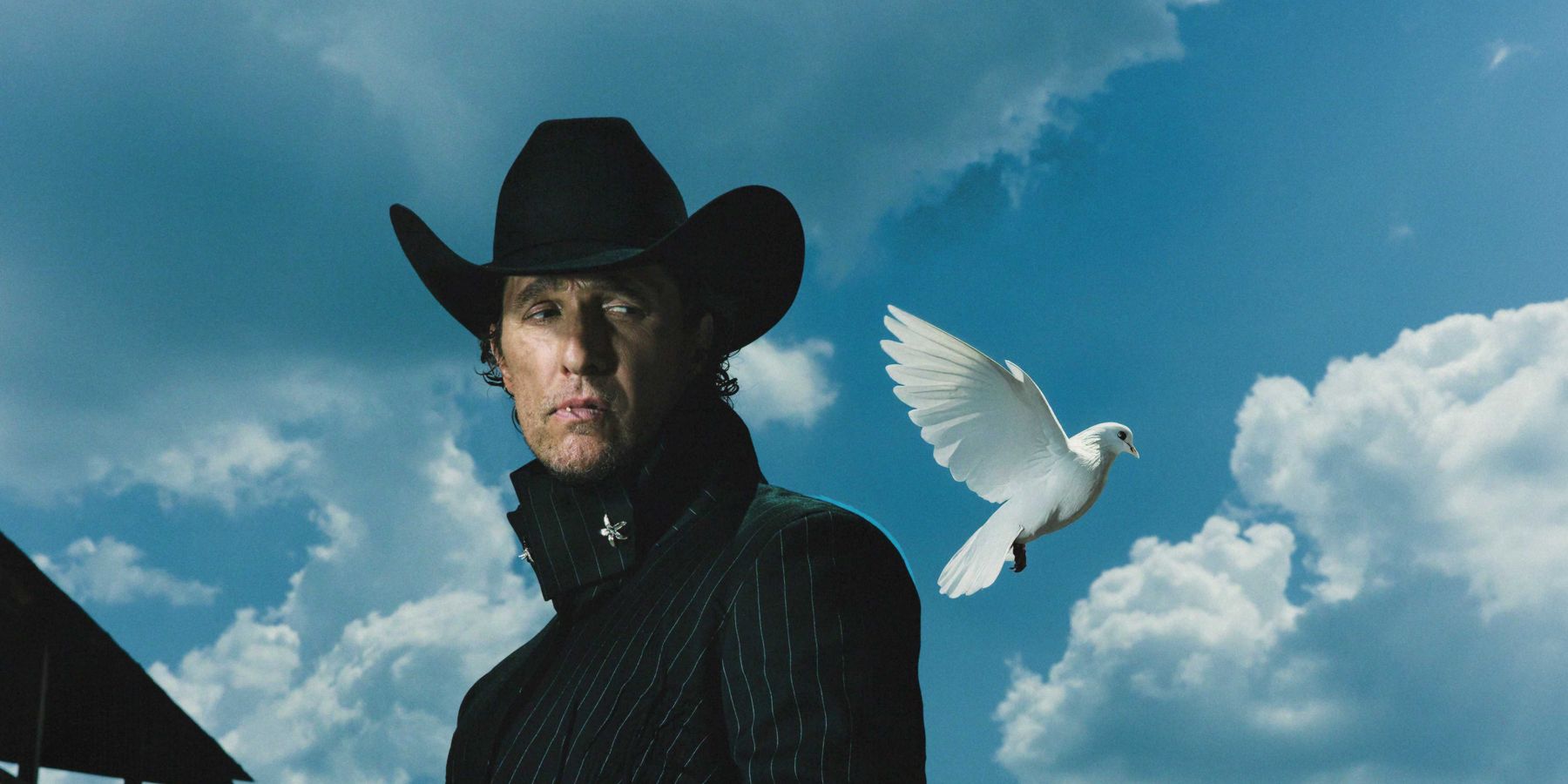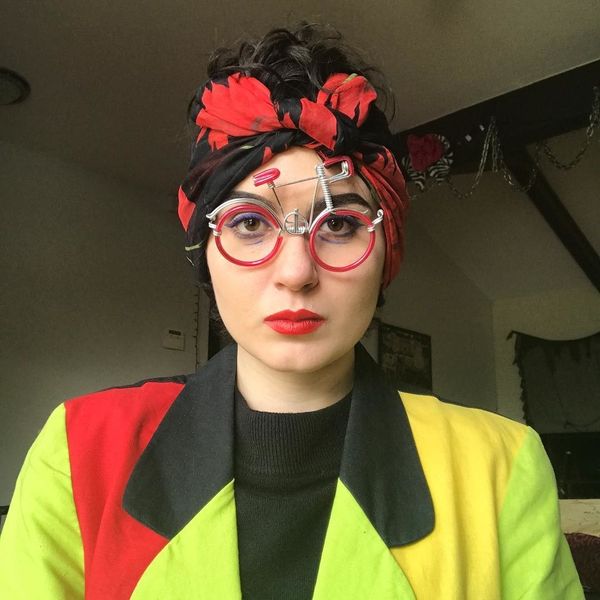
This Puerto Rican Artist Is Radicalizing Austin's Queer Scene
by Jhoni Jackson
Feb 26, 2019
A day after Hurricane Maria ripped through Puerto Rico, Jeva, a 23-year-old queer artist, DJ, and organizer based in San Juan, remembers their mother grabbing them by the shoulders: "We have to leave now," she said. "We can't stay here. It's only going to get worse."
Jeva's mother was right. The crisis that unfurled in the storm's wake — virtually all of the archipelago's 3.3 million people were without water service, electricity, or access to basic supplies — was a tragically prolonged one. Poor emergency response planning and deployment by both local and federal entities ultimately resulted in an estimated 2,995 deaths. Some experts report counts even higher, closer to 5,000.
Leaving about a month into the crisis, Jeva and their mother became part of a massive post-storm exodus — a five-month stretch during which about 400,000 Puerto Ricans migrated out, mainly to U.S. states like Florida and New York.
As conditions improved, some Puerto Ricans have moved back. On the surface, recovery seems far along (working electricity and water service are again widespread) there — yet many issues are still preventing its people from thriving. These are inveterate problems: an unemployment rate more than double that of the overall U.S. rate; the high consumer cost of goods because of maritime shipping laws imposed by the U.S.; a government that's drowning in debt and now under the control of an unelected U.S. Financial Oversight Board; austerity measures, like major budget cuts to the University of Puerto Rico and anti-worker labor reforms, handed down by that same board; and so much more.
As a non-voting, unincorporated territory of the U.S., colonialism plays a major role in Puerto Rico's problems — and colonialism affects perceptions too, of how Puerto Ricans view themselves, and how people elsewhere view Puerto Ricans. For Jeva, who ultimately resettled in Austin, Texas, confronting those truths is part of their artistic mission.
Just recently, Jeva — which, in Puerto Rican slang, can mean girlfriend or, like in this case, a super babely femme — made their first visit home since moving out. During that late January trip they hosted a homecoming edition of Queer Night, a pioneering party with live music, drag performances, and DJs that they first launched four years earlier. In many ways, Queer Night was an early launchpad for San Juan's flourishing, ever-growing queer nightlife community.
We connected with Jeva to discuss their trip to Puerto Rico, the mission behind their work, the community they've found in Austin, and more. Read, below, and listen to the mix created exclusively for PAPER, which is inspired by "humid nights in Santurce that smell like cigarettes, Medalla, and piss."
Let's start with when you left Puerto Rico. I realize that must have been a difficult decision to make.
Hurricane Maria happened, and it was a gigantic shock. I had many, many plans in Puerto Rico [before the storm]. I had an event planned out, I had a photo shoot, I had many events that I was going to participate in. I was going to be in a gallery show. There was a lot going on, and then Hurricane Maria just really destroyed all those plans.
When you think of what you had to leave behind, what comes to mind?
When I think about what I left behind in Puerto Rico, it's so many complicated feelings. I left behind my culture, I left behind my community, the people that I love, that I grew up with, that have seen me grow from being this rebellious, feminist riot grrrl to whatever I was already at the time. I left behind one of my bestest friends in the world, and yeah, it really hurt a lot that I had to leave my community and everything that I worked so hard for, for basically three years.
Even though I miss all those aspects, I also think about the negative aspects that I left behind there. There was a sense of close-mindedness in the scene in Puerto Rico. And there was a lot of protection of abusers in the scene; there's people that have done completely reprehensible things, but they still hang around there and they still have friends. It's always excused with this very soft, like, Oh, no, people make mistakes. That's true, but I know people that have stalked and harassed other people in the scene for years, I know of people that have sexually assaulted, I've known of people who have done completely reprehensible things. And you see that forgiveness given more to men than to women in many aspects.
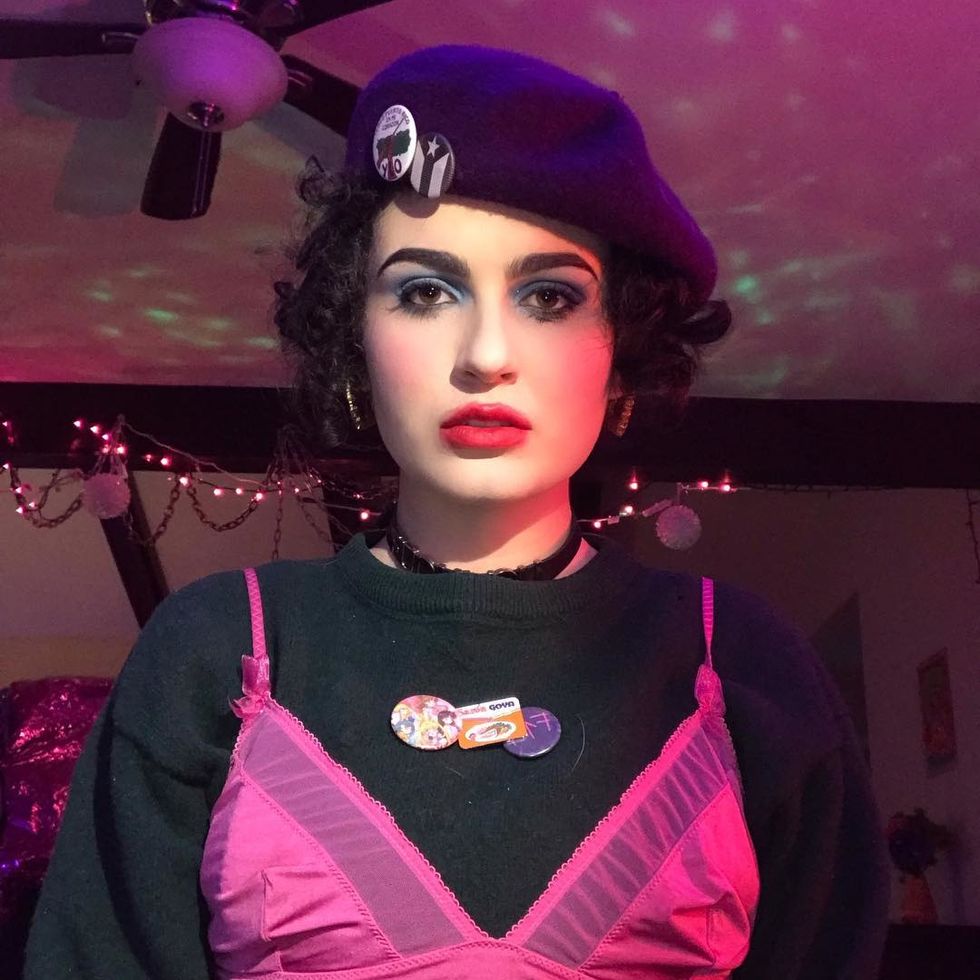
Photo via Instagram
How did that close-mindedness affect you?
I didn't feel very understood, even within feminist spaces. I remember one of the first instances where I felt that I wasn't identifying as a woman was within these feminist spaces because of what they considered to be womanhood — a lot of concentration on the body in a very bio-essentialist way, very hippy-mother-vagina kind of way, and I didn't identify with any of those aspects at all. It just made me really question what was womanhood, what was me, what was my body, who am I? And there's not a lot of understanding yet of trans people, about queerness; there's a lot of femme-phobia and of non-binary people such as myself. I also felt like I left behind a lot of toxicity.
Either way, it's complex feelings. It's not like a strict binary of I completely miss it and I die for it, or I completely, absolutely hate it. There's two sides of it, and I look at them both equally, and I just balance it out in my head. When I talk about Puerto Rico I always talk about the beautiful things I see of it, but I also keep in mind those negative aspects that were eating me away when I was living there.
"I left behind my culture, I left behind my community, the people that I love, that I grew up with, that have seen me grow."
How did you feel during your trip back? Did you find the queer community of San Juan somewhat changed?
From my observation, this new era of queers, I really like them a lot! They're a lot more conscious about intersections regarding struggle; they are very conscious about racial oppression, racism, they realize that racism isn't just a U.S. thing. There's this benign way that Puerto Ricans dismiss racism. Because since general Puerto Rico is a POC country, a lot of the anti-Blackness is ignored and it's just never mentioned because, since we're a colony or whatever, we don't want to address our own personal shit. I'm seeing that being addressed and recognized among this new generation, recognizing what anti-Blackness is and making a space for Black Puerto Ricans, which is so important.
And being generally more open to trans and non-binary people is really important; I noticed that they're even adjusting their language, which is something I admit I had a hard time adjusting to but I guess that's because I don't have any practice, because I don't have anyone to speak gender-neutral Spanish with me [in Austin].
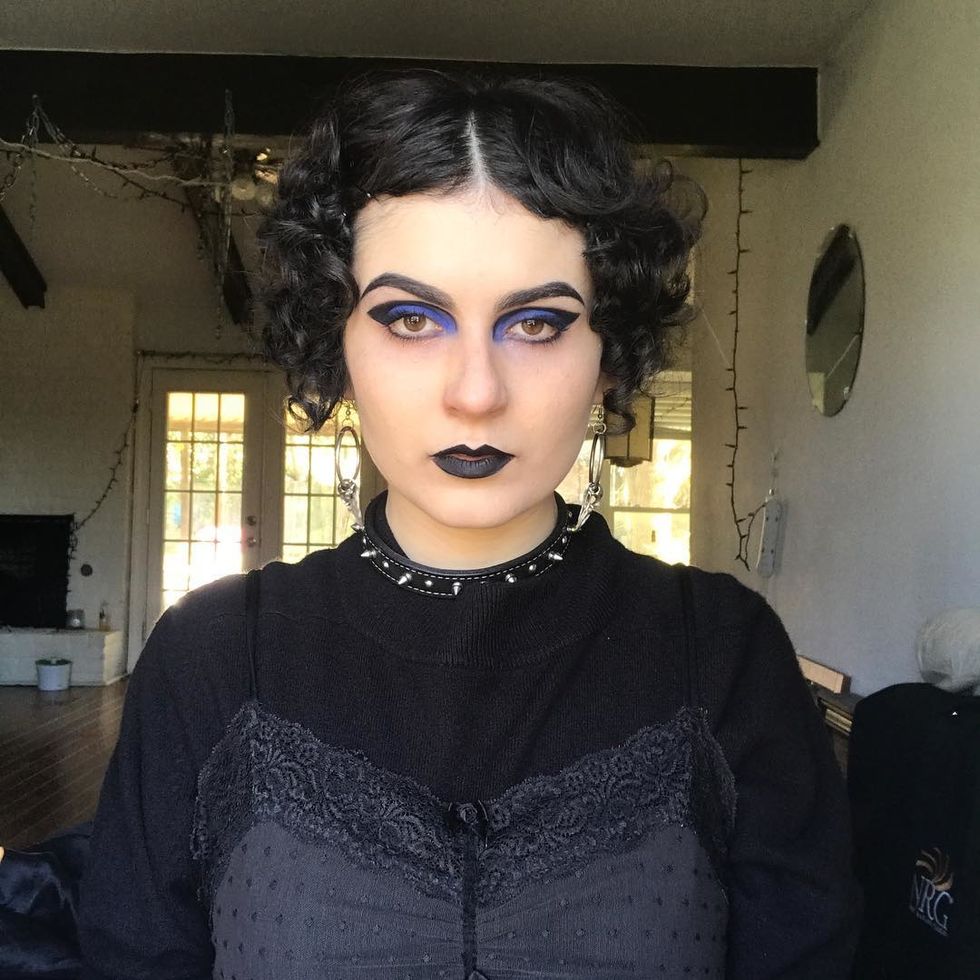
Photo via Instagram
You mentioned to me before that, watching on social media, you've seen how the scene is expanding.
I've been seeing it grow. I still follow all my queer and trans friends from Puerto Rico on social media and I'm seeing all the events, all the new organizations that y'all are building. All these new initiatives, and it just really warms my heart to see it grow the way it is. I try to explain it to people in Austin, where there is a gigantic queer club scene that it tends to intersect with other people, and for them it's really difficult to understand this concept of like, no, in Puerto Rico, there barely was anything. It's now starting to grow. And they're just not getting it. I'm like, You don't get it because you grew up in Austin. You grew up in a big city; [queer nightlife] was always available to you. I definitely am very proud of how far everybody is going and I just look forward to them growing even more and more and more.
Can you tell us more about the origins of your style?
As a teenager, I was pretty isolated. I was basically a goth kid that primarily hung out in their own bedroom, completely absorbed by the Internet. I didn't hang out much with kids my age. I was kind of far out for some people. I spent all my time looking at goth blogs, like, Adora BatBrat really influenced me dressing up real crazy. And I've always dressed up real crazy ever since I was 13. I would wear these gigantic platforms, really dramatic black eye makeup, really theatrical looks. I discovered Nina Hagen and I was like, I wanna look like that! I would also dress up like Siouxsie Sioux. I remember doing a school presentation for English class where you had to dress up as your idol, and I dressed up like Siouxsie Sioux. I even had a fake cigarette that would puff smoke.
Then I discovered the club kids; I saw all these incredible people dressing up amazingly — I was like, I wanna do that. I wanna be this glamorous punk. I thought, whenever I get involved in a punk scene, everybody's gonna look amazing! And then I get to the Puerto Rican punk scene and it's like... We all have our critiques of the punk bros, but they have their style: the one dangly earring, the winklepickers, the really trashy muscle shirt with skinny jeans. It's a look, but I was like, Where's the theatricality?
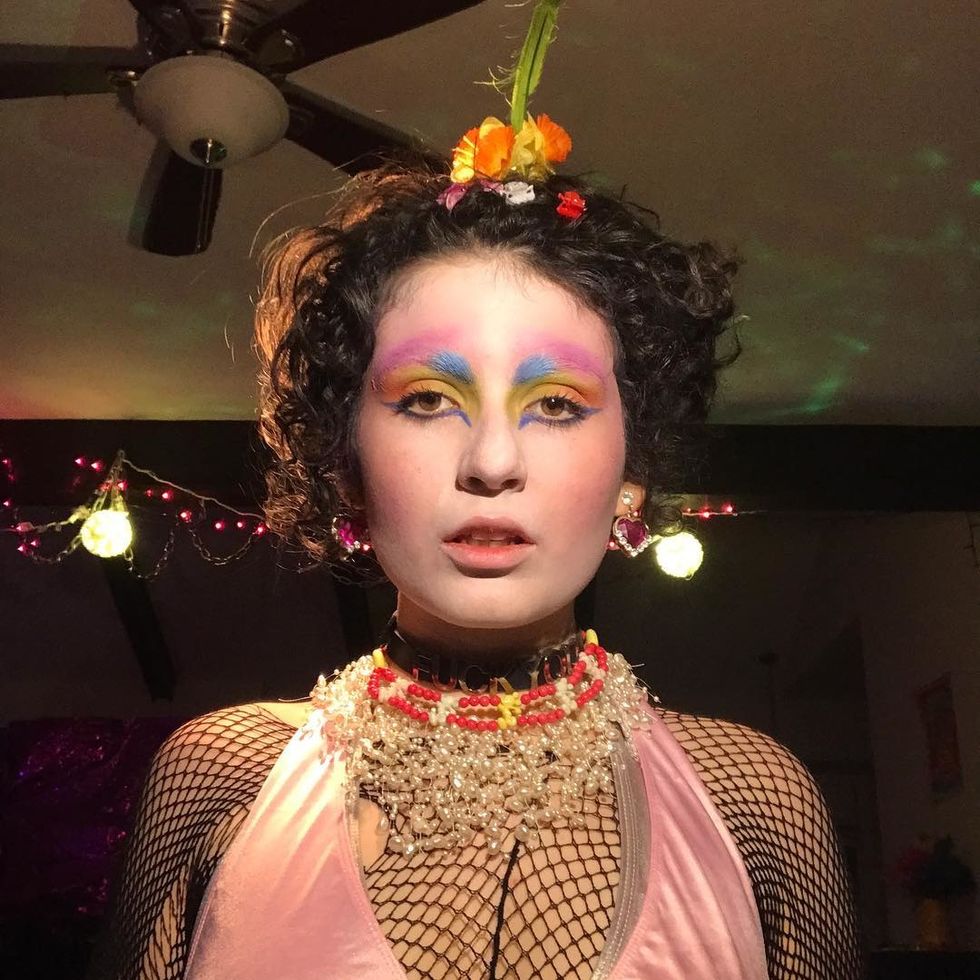
Photo via Instagram
What kind of space have you found for yourself in Austin?
Luckily, I found myself a really beautiful space here. I like to say the queer club scene is kind of a rave scene; you see a lot of people showing up in amazing looks. It's very interesting sharing space with all these people and a lot of new radical ideas about what is gender, what is sexuality. My circle of friends has been a very diverse group of people that I love. I'm friends with anarchists, I'm friends with dominatrixes, I'm friends with DJs — just a lot of different, amazing people. They've always been so accommodating and so beautifully kind. It's like a kindness I've never experienced in my life. And it's always this consideration of building a community space where everybody feels safe.
Everybody's so understanding of boundaries. That's something I've worked on in my growth as a person. I didn't respect a lot of people's boundaries or did not understand why people would react in a way, and I realized that I don't own anybody, nobody owns me. It took me a really traumatic relationship to own this, to realize this. I don't own anybody and nobody owns me. The space that has been created, the space that I have here in Austin, is one where I definitely feel safe, taken care of, understood, and seen as a person.
How has your work evolved since moving to Austin?
It's evolved into something really beautiful. My first DJ gig was for SXSW 2018 for this queer event, and I've been DJing mostly at queer or rave events [like Equal Axis for Red Bull Music], and also for a few fundraisers for the community, be that raising funds for our local anarchist bookstore or the sex workers outreach project. I've been going up and up and up, and people like my style. I'm definitely trying to improve on skills as a DJ right now.
As for demos, when I first got here I really wanted to create my own original music. It's been kind of difficult to find collaborators in that sense. However now it's starting to pick up again, and now that I know more creative people that have that mindset, maybe there might be some more collaborations for original music in the future.

Photo via Instagram
You're doing performance art too, yeah?
I did my first event here, called Deseos Mugrosos (filthy desires), co-organized with Melissa Elecktrick Golgotha, in December. The piece was called "Tu Bizcochito." It was basically a cake-sitting performance, and it was me making a performance of the fetishization of Puerto Rican women in the United States. It was also very personal, like this consideration of being an accessory, being considered all these superficial aspects of what is my culture. I'm still working on the knicks and knacks of the performance, because you know, the performance isn't amazing the first time you do it; it's by, like, the fifth time you do it that it's great.
What initially prompted this piece?
It started out with the audio of possibly the worst video I've ever seen on the Internet, of this guy talking about what he loves and hates about Puerto Rican women. Which, of course, it's like four things he likes and the rest is just shit he hates, and he sprinkles in there what he hates about Black and Mexican women, [saying] he understands why men beat on Puerto Rican, Black and Mexican women, and why their men cheat on them. It eventually turns into this whole like, Oh, yeah, I'm this reggaeton video vixen in a Puerto Rican bikini, and I just sit on this cake while a Daddy Yankee song is playing, but it turns really grotesque. I start punching myself, I'm choking myself, I'm shoving fake flowers down my throat, puking out, covering myself in neon blood with sprinkles, and I'm just force feeding cake into my mouth. I grab one of my hoop earrings and I snap it in half and I start cutting myself onstage. It was really chaotic. I think a lot of people were like, What the fuck did I just see? [Laughs] And that was my first performance art piece in Austin!
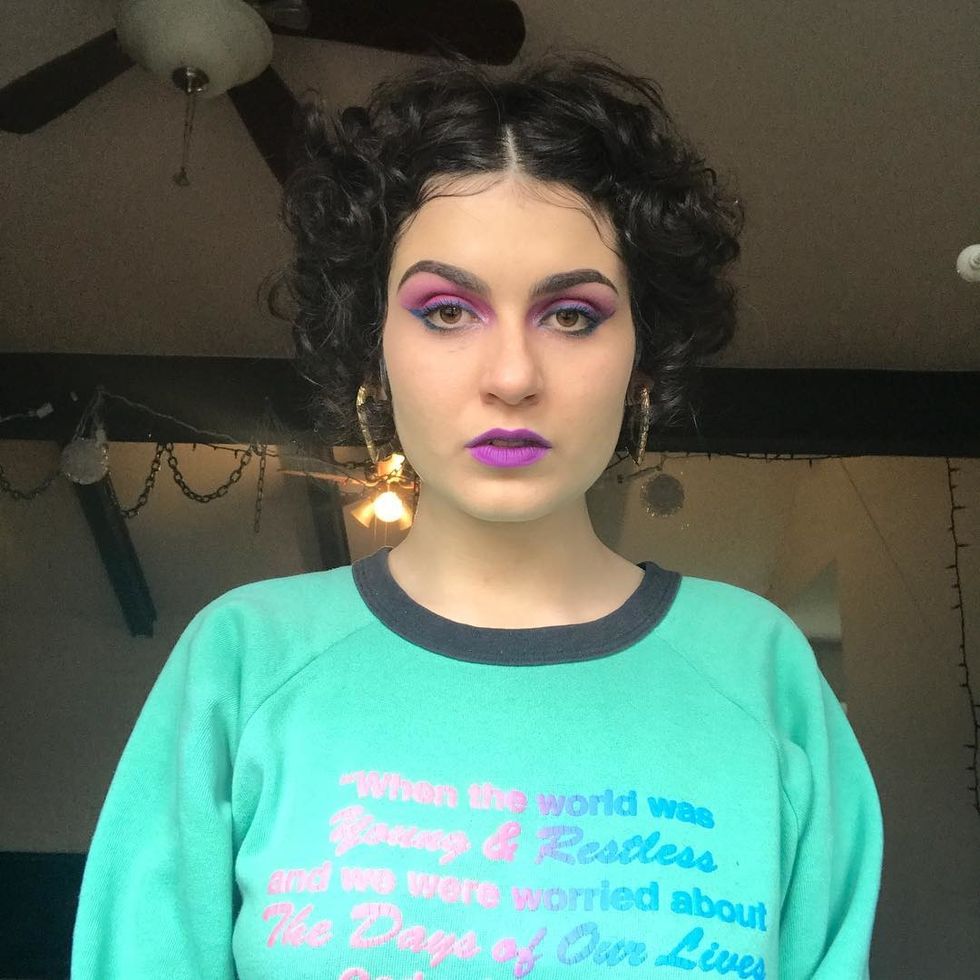
Photo via Instagram
That's the same performance you brought to Queer Night, except it began with a smudging — an energy cleaning ritual carried out by two other people. It was less violent than the one you're describing.
It's a commentary on the violence that our bodies have to take and how in this society, it's basically that attitude. In Puerto Rico, with all the femicides, you see it in the comments — it's like, I don't condone it, but I understand it. That's why you have a bunch of femicides that are not investigated by the police and you have a bunch of comments saying, Oh, what the hell did she do? She must have done something. Always blaming the violence we receive on ourselves.
It's also the fetishization. At the same time we are expected to receive all this violence, we're also supposed to be these sexual objects, always ready for whatever fantasy or desire that men have, and always horny for them, always supposed to give to them. That's what I was trying to say with my performance. And yeah, the performance was less violent than the one I did in Austin. I didn't want to do that here in Puerto Rico, I just decided to eliminate it. I am glad that it got that really good energy here. I knew it would be well received here because everybody would be getting the cultural references.
"At the same time we are expected to receive all this violence, we're also supposed to be these sexual objects, always ready for whatever fantasy or desire that men have."
So where do you go from here? What's your mission?
I'm a very absurdist person. as well as a very political person. My mission — how do I describe it? What I try to do as Jeva, this new persona, is create a satirization of what is artificial tropicality. I take all this inspiration from those tacky souvenir shops from Condado and San Juan, all the exotica from the 1950s, all the hyper-pigmented, ultra-romanticized, exotified versions of what is the Caribbean. I take all these things and exaggerate them as a form of satire, but in a way that it is very unsettling for people. It's like uncanny valley and I make it as a critique of what is colonialism. I also incorporate queerness aspects to it; it's also a reclamation of this type of identity.
What I try to do as an artist is to do a full expression of the destruction of gender, a complete obliteration of what is gender, and an exaltation of femmeness and queerness, while also bringing attention to colonial statuses of Puerto Rico. And bringing attention to the struggles of Latin America, because I also love to incorporate a lot of what is Latin American solidarity. I feel very hard with my fellow Latin American friends here in Austin, and I am trying really hard to build a community with them so that we're very unified. Especially in trying, hard times as Latin Americans in the United States, because being Latin America in your own country is one story, but being Latin American in the United States is a different one, and I think it's very important to have that solidarity with each other. Those are the two main points I try to address with what I do with my art.
Follow Jeva on Instagram (@jevvvvvvvvvva).
MORE ON PAPER
Entertainment
Cynthia Erivo in Full Bloom
Photography by David LaChapelle / Story by Joan Summers / Styling by Jason Bolden / Makeup by Joanna Simkim / Nails by Shea Osei
Photography by David LaChapelle / Story by Joan Summers / Styling by Jason Bolden / Makeup by Joanna Simkim / Nails by Shea Osei
01 December
Entertainment
Rami Malek Is Certifiably Unserious
Story by Joan Summers / Photography by Adam Powell
Story by Joan Summers / Photography by Adam Powell
14 November
Music
Janelle Monáe, HalloQueen
Story by Ivan Guzman / Photography by Pol Kurucz/ Styling by Alexandra Mandelkorn/ Hair by Nikki Nelms/ Makeup by Sasha Glasser/ Nails by Juan Alvear/ Set design by Krystall Schott
Story by Ivan Guzman / Photography by Pol Kurucz/ Styling by Alexandra Mandelkorn/ Hair by Nikki Nelms/ Makeup by Sasha Glasser/ Nails by Juan Alvear/ Set design by Krystall Schott
27 October
Music
You Don’t Move Cardi B
Story by Erica Campbell / Photography by Jora Frantzis / Styling by Kollin Carter/ Hair by Tokyo Stylez/ Makeup by Erika LaPearl/ Nails by Coca Nguyen/ Set design by Allegra Peyton
Story by Erica Campbell / Photography by Jora Frantzis / Styling by Kollin Carter/ Hair by Tokyo Stylez/ Makeup by Erika LaPearl/ Nails by Coca Nguyen/ Set design by Allegra Peyton
14 October
Entertainment
Matthew McConaughey Found His Rhythm
Story by Joan Summers / Photography by Greg Swales / Styling by Angelina Cantu / Grooming by Kara Yoshimoto Bua
Story by Joan Summers / Photography by Greg Swales / Styling by Angelina Cantu / Grooming by Kara Yoshimoto Bua
30 September




